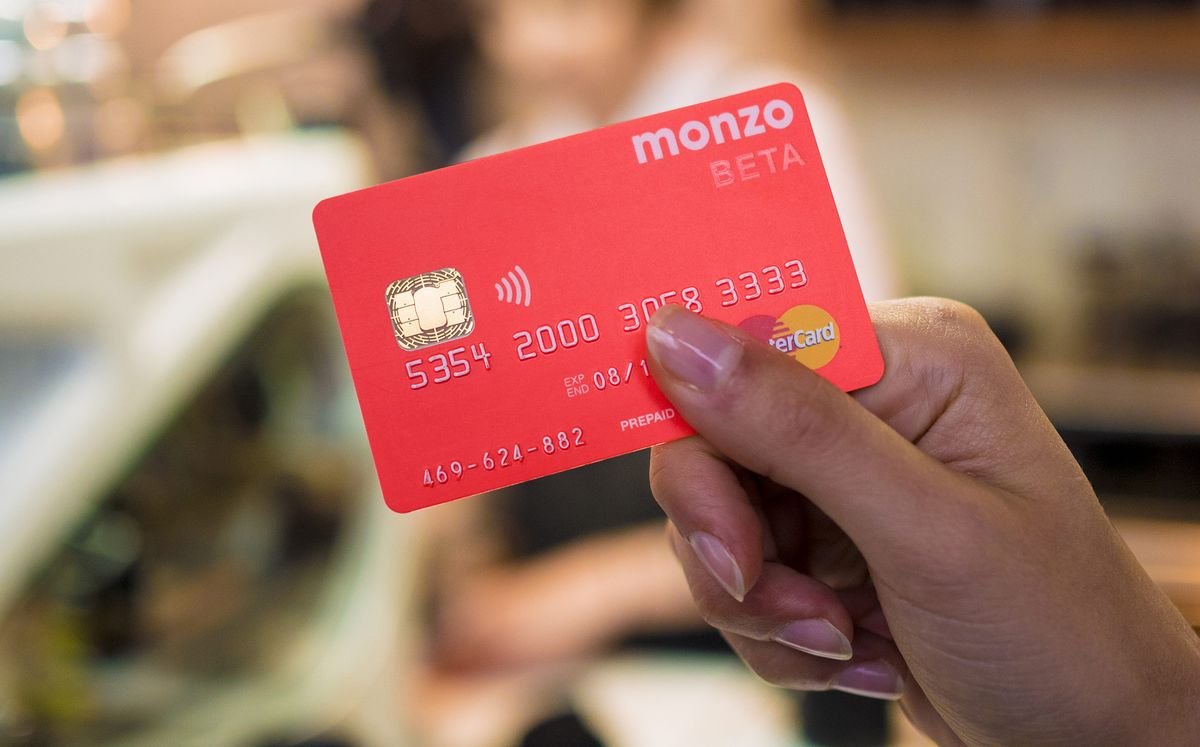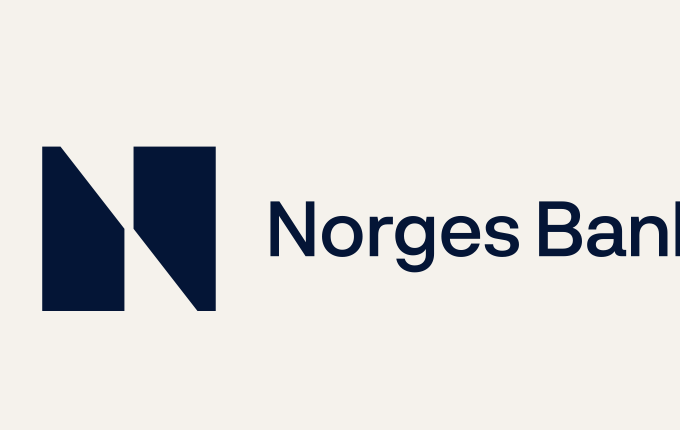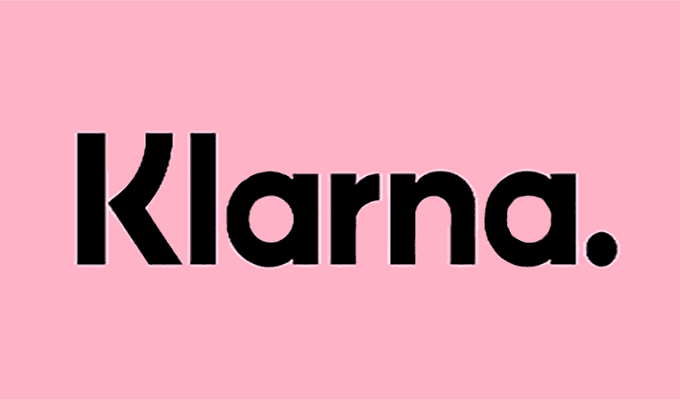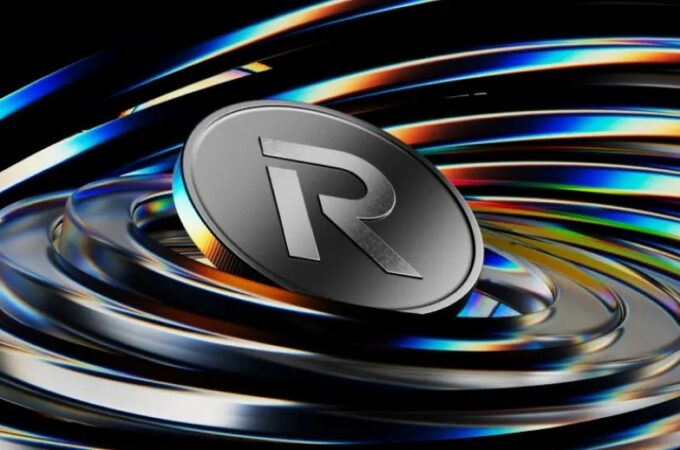
Neobanks Chasing U.K.’s Biggest Lenders Face Battle for Survival
By Richerd Partington for Bloomberg
Will Stanley and Jonathan Lind are bonding over pizza, beer and a mutual affection for their coral-colored debit cards.
“It’s the Lamborghini of card colors, it’s vulgar, it’s shouting,” Lind says. “You know, if you stick it under UV light, it’s fluorescent,” Stanley adds.
Stanley, 29, who works at London’s Science Museum, and Lind, 31, an employee of a government agency that funds medical research, have never met before. But, along with about 100 other people, they’ve come to a dingy courtyard near London’s Old Street roundabout, the heart of the city’s burgeoning tech sector, on a sweltering August evening to attend a party hosted by Monzo, the issuer of those eye-catching cards.
“We’ve all come here for drinks with our bank, which is utterly crazy,” Lind says.
Branchless Banking
Monzo is one of four financial technology companies — neobanks as they’re known in the industry — that have won licenses in the past year from U.K. regulators to offer branchless, mobile-phone-based banking. Along with Atom Bank, Starling Bank and Tandem Bank, it has pledged to shake up the sclerotic world of British retail banking dominated by four traditional lenders. Similar innovations are shaking up the financial industry from China to the U.S., where firms like alternative lender Social Finance Inc. have also used drinks parties to create a sense of community.
The U.K. neobanks are a second wave of so-called challengers, including billionaire Richard Branson’s Virgin Money Holdings Group Plc. They plan to set themselves apart by offering mobile budgeting and investment tools, instant notifications on spending habits and smarter anti-fraud features. Some intend to take advantage of incoming European rules allowing firms to access banks’ customer data, which will enable them to act as brokers for financial services offered by other lenders.
So far, they haven’t gained much traction. Atom, which began offering savings accounts in April, has only 1,800 customers, who have deposited 16 million pounds ($21 million). Monzo has distributed 35,000 prepaid debit cards on which it says 31.7 million pounds have been deposited. Those are tiny numbers in a country with 70 million checking accounts, 70 percent of them controlled by the four big banks. Even Starling acknowledged in a report published this month that little progress has been made by financial technology firms.
With so many new entrants, the neobanks risk expending resources battling one another. For consumers, regulators and investors, the risk is that at least some will fail after burning through millions of dollars.
“I’m a little bit afraid,” said Matthias Kroner, chief executive officer of Fidor Bank AG, a German smartphone lender that started doing business in the U.K. a year ago and has 1,200 customers in the country. “If you suddenly have this many new players on the market, this is increasing competition for the death of the new challengers.”
Neobanking Epicenter
The boom in mobile-banking companies is largely the result of regulatory changes following the 2008 financial crisis. After the near-collapse of two of the country’s biggest banks, Royal Bank of Scotland Group Plc and Lloyds Banking Group Plc, British lawmakers leaned on regulators to encourage more competition. It’s now easier and faster to get a banking license: 15 have been granted since 2013 and another 20 firms are in talks to apply, according to people with knowledge of the matter.
“Britain’s pitch when it comes to fintech is to have an avant garde regulator,” said John Egan, who helps oversee stakes in Atom and Fidor at venture-capital firm Anthemis Group. “You see a couple of neobanks in Germany, but London in particular is the epicenter of this movement.”
That status may be upended by Britain’s vote to leave the European Union. Many financial technology startups use the U.K. as a base for operating across the trading bloc taking advantage of so-called passporting rules that could be revoked, and the neobanks are no different. Fidor relies on passporting to sell to British consumers, while Monzo and Starling have plans for European operations.
The startups face other formidable challenges. Few British consumers switch banks. The four largest lenders — RBS, Lloyds, Barclays Plc and HSBC Holdings Plc — have lost only 5 percent of their market share since 2005.
Metro Bank Plc, a branch-based lender started in 2010, has built a customer base of about 780,000, but it hasn’t made a penny in the past six years. The bank, co-founded by former Commerce Bancorp chairman Vernon Hill, has said it expects to record a profit in the second half of 2016.
Morning Train
Meanwhile the big four are spending billions of pounds on computer systems and smartphone applications before many startups have even begun taking deposits. Lloyds, which says it’s the U.K.’s biggest digital bank with 7.3 million active mobile users at the end of June, has allocated a billion pounds a year for technology. RBS has said its busiest branch is the morning train to London from Reading, as commuters check accounts on their phones.
“The big banks will end up copying them or absorbing them into what they’re doing,” Gary Greenwood, an analyst at Shore Capital Group Ltd., said of the new mobile-based applications. “There’s no reason why a big bank spending billions on digital strategy can’t set aside 100 million pounds to replicate one of these things.”
The digital startups say the big banks can’t compete because their computer systems struggle to run high-end technology. RBS had to scrap the creation of a standalone bank, Williams & Glyn, after running into problems with aging infrastructure. HSBC’s mobile and online-banking services have faltered on several occasions this year.
“Their IT systems are beyond bad,” said Anthony Thomson, chairman and founder of Atom, who previously co-founded Metro Bank and has raised money for his new venture from investors including Spain’s Banco Bilbao Vizcaya Argentaria SA and British fund manager Neil Woodford. “They can create a wonderful new app, but they still have to plug them into a pig of an old back-office system.”
Name Change
The celebration that enticed Lind and Stanley out on a Thursday night highlights the perils new entrants face. The party was to announce something potentially devastating to the brand: a name change. Mondo, as the company was originally called, would from now on be known as Monzo, Tom Blomfield, the bank’s 31-year-old founder, told the assembled crowd.

“In a month or two we’ll have forgotten it was called Mondo, everyone else will have forgotten too,” said Blomfield. “You bring meaning to a name rather than the other way around.”
The name change came after a copyright dispute with another company, Blomfield said in an interview, declining to identify the firm. That company, according to two people familiar with the matter, was German digital lender Monedo, a unit of Hamburg-based Kreditech Holding SSL GmbH, which is backed by billionaire Peter Thiel and New York-based private equity firm JC Flowers & Co. A spokeswoman for Monedo said she could neither confirm nor deny whether it challenged Blomfield.
“Rather than wasting hundreds of thousands of pounds on lawsuits that we may or may not win, it was easier to go and choose a new name,” Blomfield said.
Internecine Warfare
At least one competitor wasn’t about to let him make the switch without enduring some pain. Starling got wind of the new name and and registered the web address getmonzo.co.uk. Then, as Blomfield was unveiling Monzo, Starling posted its own advertisement on the site.
Internecine warfare is common. Atom’s competitors have ridiculed it for building its mobile application on a game-design platform used to create Pokemon Go that critics say is ill-suited for displaying financial data. Tandem, which lost 6.4 million pounds last year, has been the target of a whispering campaign questioning why, months after gaining a banking license, it has done little more than create a place-holding website. Founder Ricky Knox said Tandem has been deliberately vague to prevent other firms from copying his plans.
None of the rivalries has been as intense as that between Monzo and Starling. Blomfield set out to create a new bank with former Allied Irish Banks Plc executive Anne Boden, only for the project to splinter into rival camps last year. Blomfield left along with other employees and formed Mondo, while Boden became CEO of Starling. Both won licenses from the Bank of England in recent months to offer checking accounts.
“It would make a great book one day, but for now we’re bound by legal agreements and we can’t discuss it,” Blomfield said of the spat. Boden declined to talk about the situation beyond saying “startup life is like this.”
Similar Niche
The tensions go beyond personality clashes. Boden and Blomfield plan to occupy a similar niche, offering checking accounts to millennials, and both see the bank of the future as a financial marketplace for services supplied by other vendors. But while Monzo will lend money to earn interest income, Boden says Starling won’t do anything other than offer a free checking account.
Most banks view checking accounts as loss leaders, but Boden said in an interview at Starling’s offices in London that her firm can make money with the help of low-cost technology and by charging interest on overdrafts. Shore Capital’s Greenwood is skeptical.
“If you can heavily automate checking accounts, it can keep your cost down and maybe you can make money by lending those deposits out or investing them,” Greenwood said. “But they tend to lose money and act more as a relationship point to cross-sell products through.”
The other neobanks plan a broader range of products. Atom says it will add mortgage lending and checking accounts to the savings products and small-business loans it already offers. Tandem will interact with customers over a mobile app and provide loans and savings and checking accounts that crunch data to help them find the cheapest gas and electricity providers, according to Knox, the firm’s founder.
Omidyar, McPike
U.K. regulators require startup banks to have enough capital to reimburse depositors and cover the cost of winding down operations should the company fail. They must also outline their resolution plans in a so-called living will, before they’re even born.
Tandem is looking to raise about 40 million pounds to add to about 25 million pounds it got from investors including EBay Inc. founder Pierre Omidyar and venture-capital firm Route 66 Ventures. Monzo has raised about 8 million pounds, most of it from Passion Capital, an early-stage venture-capital firm. It plans to raise an additional 20 million pounds before it offers checking accounts in the coming months. Atom’s Thomson said his company will seek 100 million pounds next year, on top of 135 million pounds it already raised.
“No aspect of the regulatory action reflects negatively on my character, and there was no allegation of wrongdoing personally,” McPike said in an e-mailed statement.
‘Niche Following’
For all their talk of disrupting the biggest lenders, the neobanks that survive will probably end up being acquired by them, said Warren Mead, global co-leader of fintech at KPMG LLP in London. Those that do succeed will need to do more than copy existing business models, according to Anthemis’s Egan.
“The winners need to be very different from the major high-street banks,” he said.
Coral debit cards might not be enough.
First appeared at Bloomberg





